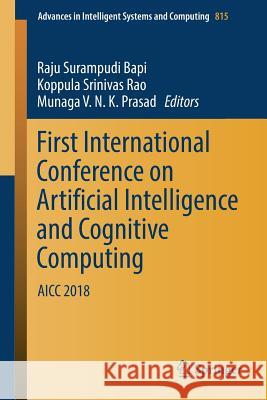First International Conference on Artificial Intelligence and Cognitive Computing: Aicc 2018 » książka
topmenu
First International Conference on Artificial Intelligence and Cognitive Computing: Aicc 2018
ISBN-13: 9789811315794 / Angielski / Miękka / 2018 / 716 str.
This book presents original research works by researchers, engineers and practitioners in the field of artificial intelligence and cognitive computing.











